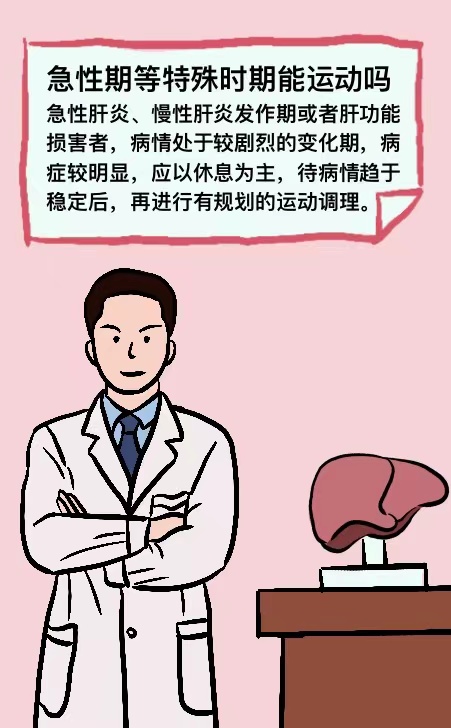How do we exercise scientifically to protect the liver?

[ad_1]
March 18th is “National Liver Love Day”. The liver is an important metabolic and detoxification organ of the human body. According to Zeng Yan, Director of the First Division of the Hunan Provincial Occupational Disease Prevention and Control Institute, there are many factors that affect liver health. Viral hepatitis, alcohol, drugs, and bad living habits may all cause liver damage.
Among them, the number of patients with fatty liver disease caused by lack of exercise and excessive intake of high-fat diet has increased in recent years. In fact, most fatty liver patients can control their condition by adjusting diet and exercise therapy. What kind of exercise is more suitable for patients with liver disease? How to choose the right exercise intensity? Can I exercise in special periods such as the acute stage? Let’s find out together.
Fat deposition in the liver will affect the metabolic function of the liver. Moderate exercise can reduce fat deposition in the liver, thereby improving the metabolic function of the liver and promoting disease recovery.
The doctor reminds: Moderate-intensity aerobic exercise and flexibility training are more suitable. Aerobic exercise refers to the exercise training performed by the human body under the condition of sufficient oxygen supply, mostly using large muscle groups, periodic and rhythmic exercise , Patients can make reasonable arrangements according to their hobbies and work and rest time.
Brisk walking is the most commonly used and economical form of aerobic exercise, and activities such as jogging, swimming, dancing, cycling, and badminton are all good aerobic exercises.
Flexibility training refers to gentle muscle stretching and slow motion exercises. Flexibility training can increase muscle flexibility and joint range of motion, prevent muscle injuries in other sports, and reduce the risk of falls. Yoga, Baduanjin, etc. can all play a role in flexibility training role.
So, how to judge whether the exercise intensity is appropriate?
The doctor reminded: it is not that the greater the amount of exercise, the better the effect. Only moderate exercise can achieve good curative effect. The generally applicable principle is to do it step by step and do what you can.

Patients should focus on their heart rate. After exercising, they should feel whether the heartbeat is fast or not, and whether it can return to normal levels immediately. In addition, they should also pay attention to whether the fatigue of the body after exercise is controllable, mild fatigue and good mental state, and appetite and sleep are normal. It means that the exercise intensity is appropriate. If you feel very tired after exercise, your limbs are heavy, you feel weak, you don’t want to eat, you don’t sleep well, and you are depressed, it means that the intensity is too high and you should adjust it. It is worth noting that exercise is not suitable for special periods. Patients with liver disease Symptoms such as yellow complexion, fatigue, insomnia, dreaminess, loss of appetite, vomiting, and upper abdominal pain may occur. Patients with acute hepatitis, chronic hepatitis, or liver function damage should take rest if their condition is in a period of severe change. Mainly, after the condition stabilizes, planned exercise training will be carried out.

In addition, the doctor reminded that preventive hepatitis B vaccine should be vaccinated in time, drinking less alcohol as much as possible, choosing a low-sugar and low-fat diet, staying away from moldy food, staying up late, avoiding overwork, insisting on scientific exercise, and maintaining an optimistic mood. important mode of disease.
Art Director/Correspondent: Wen Na
Cartoonist: Zhang Yulu
Produced by Shuaicai Studio, Hunan Branch of Xinhua News Agency
Acknowledgments: Hunan Provincial Institute for Occupational Disease Prevention and Control
[ad_2]
Source link

![[Love Wants Sexual Happiness Series 358]Find the culprit and overcome psychogenic erectile dysfunction. Don’t let pressure affect your sexual happiness.](https://chinathenews.com/wp-content/uploads/2024/04/171111-780x420.jpg)

![[Wanqingyi Care]My health, my rights, customized medical methods in the last stage of life](https://chinathenews.com/wp-content/uploads/2024/04/ZZ1-100-780x420.jpg)
![[Kidney Transplantation Special Topic]The survival rate of transplanted kidneys is high without dialysis treatment three times a week](https://chinathenews.com/wp-content/uploads/2024/04/1311-780x420.jpg)



